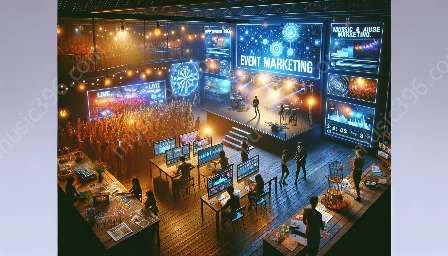Live music events have always been a crucial part of the music industry, and with the rise of digital marketing and technology, incorporating analytics into live music event promotion has become essential for success. In this guide, we will explore the best practices for leveraging marketing analytics to promote live music events effectively.
The Role of Marketing Analytics in the Music Industry
Marketing analytics plays a vital role in understanding consumer behavior, identifying market trends, and measuring the success of marketing initiatives. In the context of live music event promotion, analytics can offer valuable insights that help event organizers and promoters make data-driven decisions to maximize ticket sales, enhance audience engagement, and ultimately create memorable experiences for music enthusiasts.
Understanding Your Target Audience
One of the foundational best practices for incorporating analytics into live music event promotion is understanding your target audience. Utilizing marketing analytics allows event organizers to segment and analyze their audience based on demographics, preferences, behaviors, and past attendance data. By gaining a deeper understanding of the target audience, promoters can tailor their marketing efforts to resonate with specific segments, leading to more effective promotional campaigns and higher ticket sales.
Data-Driven Event Planning and Promotion
Effective event planning and promotion rely on data-driven insights. By leveraging marketing analytics, event organizers can analyze factors such as geographic location, online behavior, and purchase history to optimize event logistics and promotional strategies. For example, analytics can reveal which online platforms or social media channels are most effective in reaching the target audience, enabling promoters to allocate marketing budgets more efficiently and engage potential attendees with compelling content.
Measuring Campaign Performance
Measuring the performance of marketing campaigns is crucial for improving future promotional activities. Marketing analytics provides event organizers with the means to track and measure the impact of various marketing efforts, such as email campaigns, social media advertisements, influencer partnerships, and content marketing initiatives. By monitoring key performance indicators (KPIs) like click-through rates, conversion rates, and ticket sales, organizers can refine their strategies, optimize their marketing spend, and continuously improve the effectiveness of their promotional campaigns.
Implementing Data-Driven Pricing Strategies
Pricing strategies significantly influence the success of live music events. Marketing analytics empowers event organizers to set data-driven pricing strategies by analyzing market demand, consumer purchasing behaviors, and pricing elasticity. Through predictive analytics, promoters can dynamically adjust ticket prices to maximize revenue while ensuring that the event remains attractive and accessible to potential attendees.
Enhancing Audience Engagement and Experience
Engaging the audience and creating memorable experiences are primary objectives for live music event promotion. Marketing analytics can provide event organizers with insights into audience preferences, enabling them to curate personalized experiences, offer targeted promotions, and enhance overall audience satisfaction. Understanding attendee preferences through data analysis allows for the development of tailored experiences and the delivery of relevant content, leading to increased satisfaction and loyalty among attendees.
Technology Integration and Innovation
Embracing innovative technologies and analytical tools is essential for successful music event promotion. Technology integration, such as the use of customer relationship management (CRM) systems, marketing automation platforms, and advanced analytics solutions, allows event organizers to streamline their promotional processes, personalize communication, and track the entire customer journey. By continuously innovating and adopting cutting-edge marketing analytics tools, promoters can stay ahead of market trends and create impactful promotional strategies.
The Impact of Analytics on Music Marketing Performance
The incorporation of analytics into live music event promotion significantly impacts overall music marketing performance. By harnessing marketing analytics, event organizers have the ability to measure the effectiveness of their strategies, optimize resource allocation, and continuously improve their promotional activities. Ultimately, integrating analytics into music marketing empowers organizers to make informed decisions, enhance audience engagement, and drive higher ticket sales, contributing to the success of live music events and the broader music industry.


























